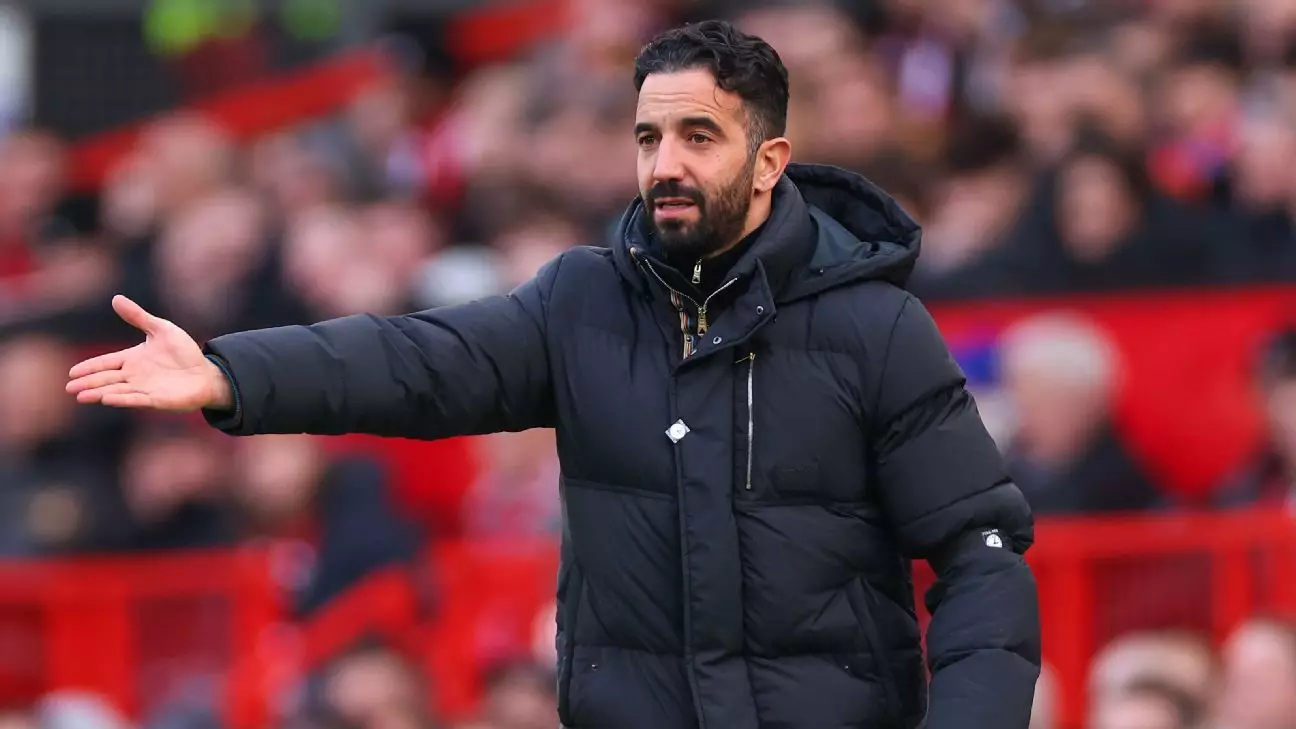In the ever-competitive landscape of professional football, financial realities can heavily impact a club’s success and development. This is particularly true for Manchester United, a team grappling with both financial limitations and performance expectations. Head coach Ruben Amorim recently addressed the pressing issue of squad restructuring that is necessary for the club to enhance its competitiveness on the pitch. He articulated that strengthening the team in the summer is contingent upon offloading certain players first, emphasizing a crucial domino effect prompted by the club’s fiscal status.
Amorim made it clear that the process of revamping the squad wouldn’t be straightforward. His statement, “to do something we need to sell players,” depicts a candid understanding of the financial framework necessitated by regulations such as Financial Fair Play. With the January window having allowed the team to send several players on loan including notable names like Rashford and Antony, the necessity of recalibrating the squad persists, suggesting a long-term vision marred by immediate constraints.
Behind the scenes, the struggle for financial equilibrium continues to shape decisions at Manchester United. Reports have surfaced indicating potential further job cuts among club staff, with over 250 employees having already lost their positions since Sir Jim Ratcliffe took over operations within the last year. Amorim remained acutely aware of these challenges and stated, “I have to understand all these problems but that problem of our club is not new.” His reflections underscore the ongoing turbulence off the field and the ways in which it influences day-to-day management and strategy.
This ongoing streamlining creates an atmosphere of uncertainty, yet Amorim remains focused on his immediate goal: navigating the upcoming match against Tottenham. By prioritizing the next game, he seeks to instill a sense of urgency and focus within the squad, despite the looming complexities attached to the club’s financial makeup.
In the pursuit of a rejuvenated squad, Amorim has begun to incorporate younger talents into the fold. Signings like Patrick Dorgu and Ayden Heaven potentially signal a shift towards building a base of youthful potential amid the current turbulence. Amorim noted the nerves exhibited by Dorgu during his initial forays with the team, indicative of the psychological pressure on younger players stepping into a high-stakes environment. Herein lies a crucial aspect of Amorim’s philosophy: fostering a resilient core that can support and elevate burgeoning talent is essential for success.
The head coach’s recognition that “with a strong core, it will be easier for the players to play football” speaks volumes about the strategic framework he hopes to implement. These sentiments highlight a deliberate effort to establish a blend of experience and youth, rekindling the club’s identity as a breeding ground for both talent and seasoned professionals.
Ruben Amorim’s tenure at Manchester United embodies the complexity of navigating a club steeped in history amidst challenging financial dynamics. With an eye on both immediate match-day performance and long-term squad strategy, his leadership will be tested as he aims to pivot the club towards a brighter future. Ultimately, the key lies in balancing financial literacy with effective player development, galvanizing the squad to rise to the challenges presented by a demanding footballing landscape. The road ahead is undoubtedly fraught with obstacles, but Amorim’s resolve may just lead Manchester United towards reclaiming its spot among the elite.
